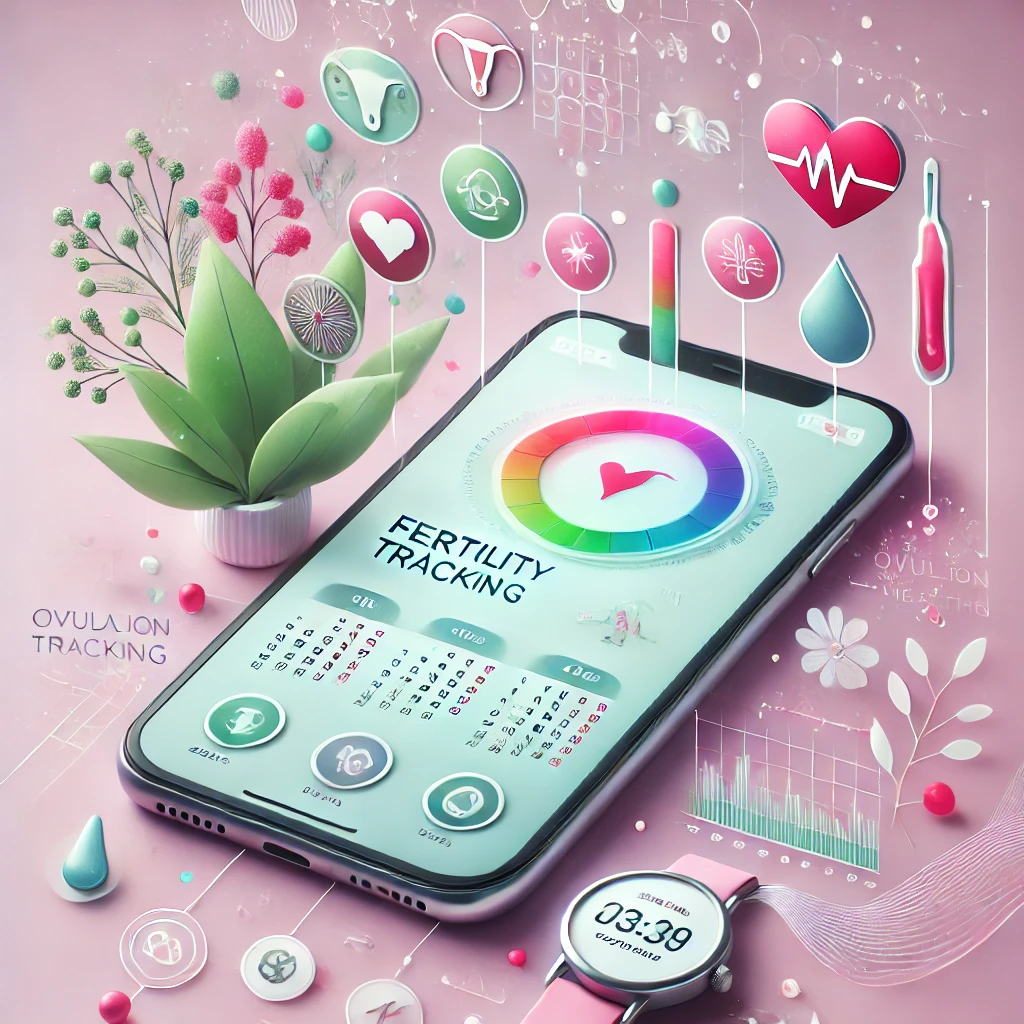Introduction
In recent years, the landscape of women’s health has undergone a remarkable transformation, driven largely by advancements in technology and a growing awareness of reproductive health. One of the most significant developments in this area is the rise of fertility tracking apps. These digital tools empower women to take control of their reproductive health by providing insights into their menstrual cycles, ovulation patterns, and overall wellness.
According to projections from Persistence Market Research, the fertility tracking apps market is expected to grow significantly, increasing from US$81.39 billion in 2024 to US$206.34 billion by 2031. This growth reflects a CAGR of 14.2% during the forecast period from 2024 to 2031. A key factor driving this market expansion is the heightened awareness of women’s health, particularly reproductive health.
Understanding the Surge in Popularity
The surge in the popularity of fertility-tracking apps can be attributed to several factors. Firstly, there is an increasing demand for personalized healthcare solutions. Women are becoming more proactive about their health and seeking out tools that cater to their individual needs. Fertility tracking apps offer personalized insights, allowing women to track their menstrual cycles, predict ovulation, and monitor symptoms related to their reproductive health. This customized approach fosters a greater understanding of one’s body, leading to more informed health decisions.
Secondly, societal shifts regarding women’s health discussions have played a pivotal role. The stigma surrounding conversations about reproductive health is gradually dissipating. More women are openly discussing topics such as menstruation, fertility, and reproductive challenges. This cultural shift encourages women to seek solutions and support, leading to increased adoption of fertility tracking apps.
The Technological Advancements Fueling Growth
The integration of advanced technology into fertility tracking apps has also significantly contributed to their popularity. Artificial intelligence (AI) and machine learning algorithms are becoming increasingly common in these applications, enabling them to provide more accurate predictions and personalized insights. For instance, some apps analyze user data to predict fertile windows and ovulation with a high degree of accuracy. This level of precision helps women make informed decisions about family planning and reproductive health.
Moreover, the incorporation of wearable technology has revolutionized fertility tracking. Many apps now sync with wearable devices that monitor physiological indicators such as heart rate, body temperature, and sleep patterns. This comprehensive approach allows women to gain deeper insights into their overall health and its impact on fertility, making the apps even more valuable.
Diverse Applications and Target Audiences
Fertility tracking apps cater to a diverse range of needs, appealing to various target audiences. While many women use these apps for family planning, others utilize them to understand irregular cycles, manage symptoms of conditions like polycystic ovary syndrome (PCOS), or track hormonal changes during menopause. This versatility broadens the market reach and ensures that these apps serve a wide demographic.
Furthermore, the apps are not just for those trying to conceive; they are also valuable tools for individuals looking to understand their menstrual health better. By providing insights into cycle patterns and symptoms, these apps empower women to communicate effectively with healthcare providers, enhancing overall reproductive health management.
The Role of Community and Support
Another noteworthy trend in the fertility tracking apps market is the emphasis on community and support. Many apps now offer features that connect users with others who share similar experiences. This community aspect fosters a sense of belonging and support, allowing women to share their journeys, seek advice, and find encouragement. Such platforms can be particularly valuable for those facing fertility challenges, providing emotional support and resources.
Regulatory Considerations and Data Privacy
As the fertility tracking apps market grows, so do concerns about data privacy and regulatory compliance. Given the sensitive nature of reproductive health data, app developers must prioritize user privacy and ensure compliance with regulations such as the Health Insurance Portability and Accountability Act (HIPAA) in the United States and the General Data Protection Regulation (GDPR) in Europe. Users must feel secure that their personal information is protected and that they have control over how it is used.
To address these concerns, many reputable apps implement robust security measures and transparent privacy policies. This commitment to user privacy not only builds trust but also enhances the app’s credibility in a competitive market.
Market Challenges and Opportunities
While the fertility tracking apps market presents significant growth opportunities, it also faces challenges. The sheer number of available apps can make it difficult for consumers to choose the right one. Moreover, the varying quality and accuracy of different apps can lead to misinformation or confusion regarding reproductive health.
To stand out in this competitive landscape, app developers must focus on providing evidence-based information, accurate tracking capabilities, and user-friendly interfaces. Collaborating with healthcare professionals and incorporating their expertise can also enhance the credibility of the app and improve user satisfaction.
Future Trends in Fertility Tracking Apps
Looking ahead, several trends are likely to shape the future of fertility-tracking apps. One emerging trend is the integration of telehealth services. As telemedicine continues to gain traction, fertility-tracking apps may incorporate features that allow users to consult with healthcare providers directly through the app. This seamless integration can facilitate timely medical advice, improving the overall user experience.
Another potential trend is the expansion of educational content within apps. Providing users with comprehensive resources about reproductive health, fertility treatments, and wellness practices can empower women to make informed decisions. By fostering a deeper understanding of their health, users may feel more confident in utilizing the app’s features effectively.
Conclusion
The fertility tracking apps market is experiencing a transformative phase, driven by technological advancements, increased awareness of women’s health, and a cultural shift toward open discussions about reproductive health. With projections indicating significant growth, the market is poised to play a crucial role in empowering women to take charge of their reproductive health.
As these apps continue to evolve, incorporating community support, data privacy measures, and telehealth features, they will not only enhance women’s understanding of their bodies but also improve access to healthcare resources. The future of women’s health is undoubtedly intertwined with the innovations brought forth by fertility tracking apps, paving the way for a healthier, more informed generation of women.
Follow Us: LinkedIn| Twitter| Instagram
Read More: Toursntime.com


